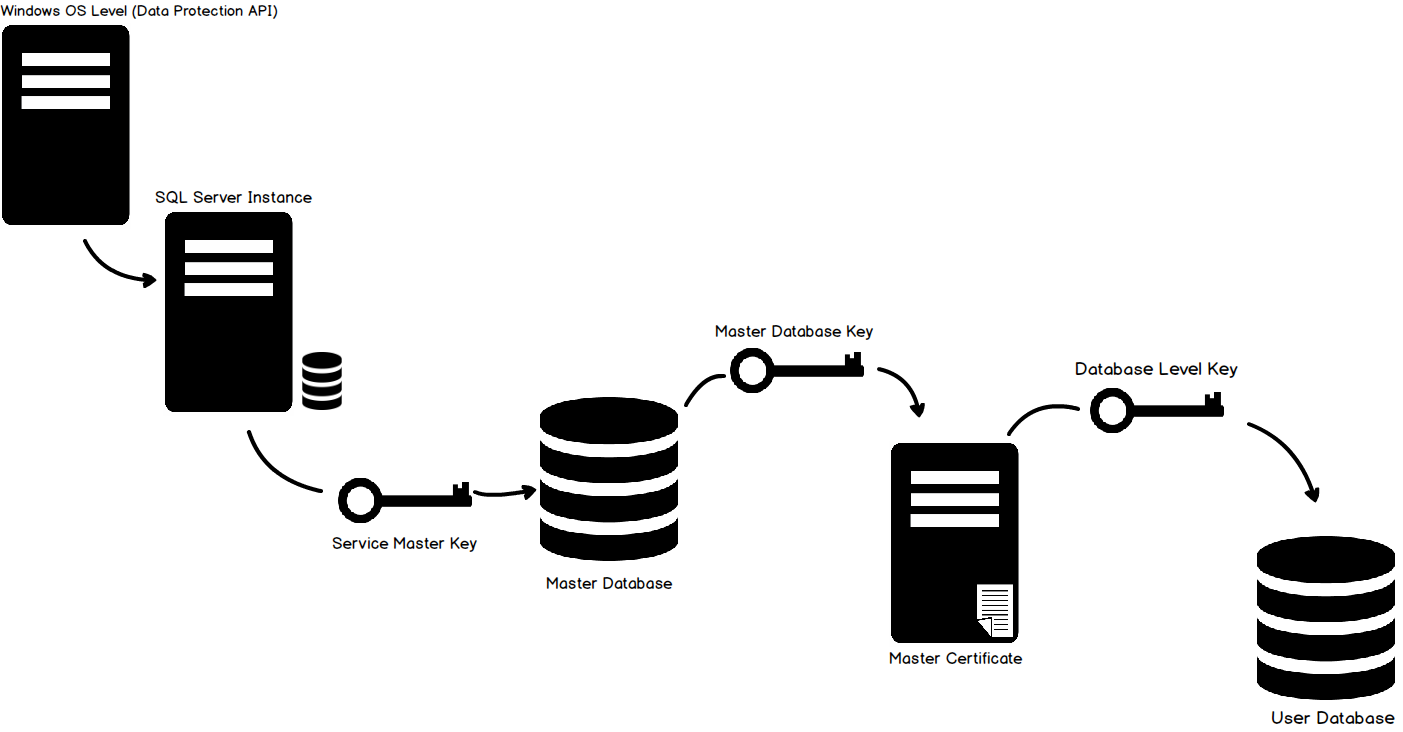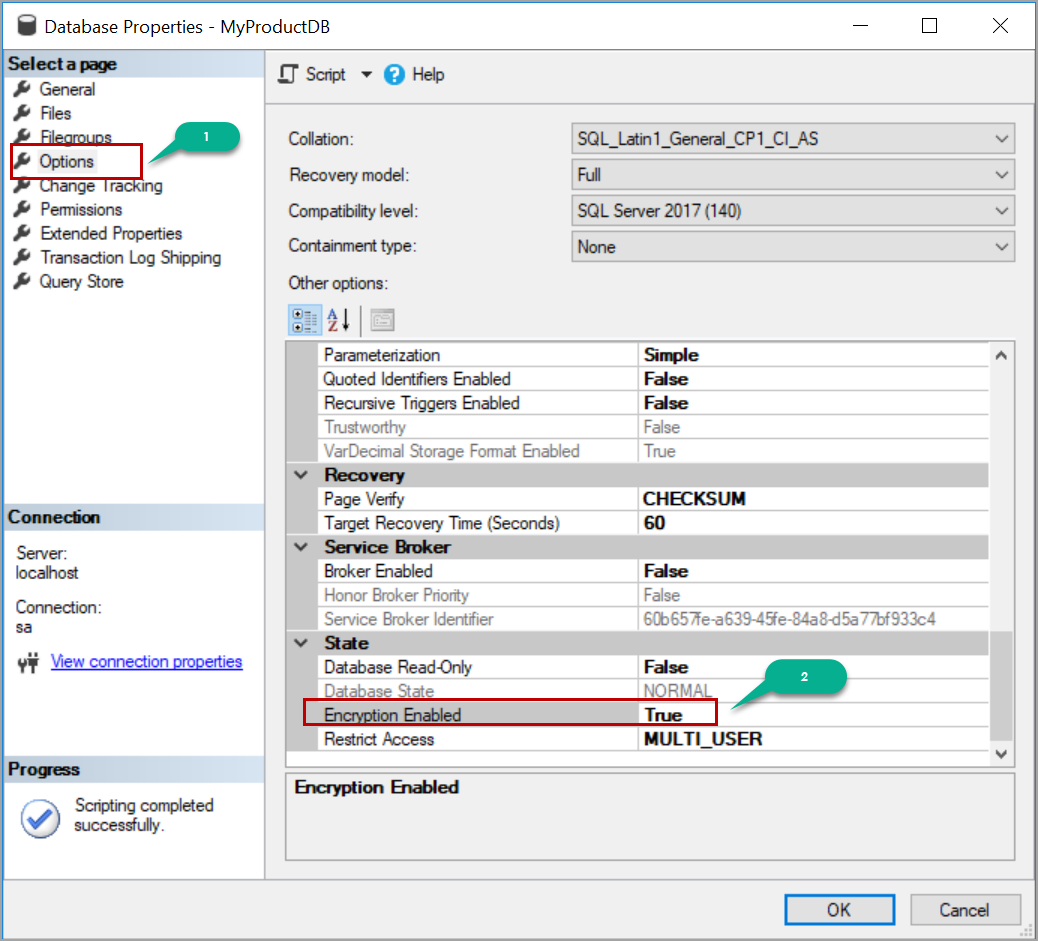How to store encryption key in database images are ready in this website. How to store encryption key in database are a topic that is being searched for and liked by netizens now. You can Get the How to store encryption key in database files here. Download all free images.
If you’re looking for how to store encryption key in database images information linked to the how to store encryption key in database interest, you have visit the right site. Our site frequently provides you with suggestions for seeking the maximum quality video and picture content, please kindly surf and locate more informative video content and images that fit your interests.
How To Store Encryption Key In Database. Since the key is effectively a password hashing should be sufficient and is recommended. However the server boots into an unusuable state requiring you to manually supply the key before work can be done. There are different hashing algorithms. The encryption of this data consists of using an algorithm to convert text or code for it to be unreadable.

 Data Encryption Models In Microsoft Azure Microsoft Docs From docs.microsoft.com
Data Encryption Models In Microsoft Azure Microsoft Docs From docs.microsoft.com
23042020 The Master Key Configuration page is where you set up your CMK and select the key store provider where the CMK will be stored. Similar to the option above but also different. A valid connections string that re-directs to a file on disk. The encryption of this data consists of using an algorithm to convert text or code for it to be unreadable. However the server boots into an unusuable state requiring you to manually supply the key before work can be done. Putting the encryption key anywhere in the database or accessible to the database frequently defeats the purpose of encryption because anyone with access to the database can simply decrypt the data.
23042020 The Master Key Configuration page is where you set up your CMK and select the key store provider where the CMK will be stored.
Government regulations including HIPPA require some forms of private or sensitive data to be transmitted in encrypted form. Note that it is required to use a Password Based Key Derivation Function PBKDF such as PBKDF2 bcrypt or scrypt to create a secure password hash given the normal security level of a password. There are different hashing algorithms. Since the key is effectively a password hashing should be sufficient and is recommended. Remember to use the algorithm correctly. The encryption of this data consists of using an algorithm to convert text or code for it to be unreadable.

 Source: sqlshack.com
Source: sqlshack.com
Remember to use the algorithm correctly. If Oracle permissions are enough to prevent the user from decrypting the data they would be enough to prevent the user from selecting the unencrypted data. Government regulations including HIPPA require some forms of private or sensitive data to be transmitted in encrypted form. Database encryption is. Let encrypted cipherupdatesourceData binary binary.
 Source: thesslstore.com
Source: thesslstore.com
Putting the encryption key anywhere in the database or accessible to the database frequently defeats the purpose of encryption because anyone with access to the database can simply decrypt the data. Function encrypt key sourceData const iv Bufferalloc16 0. This tutorial shows how to store your keys in the Windows certificate store. To get a separate key. Currently you can store a CMK in the Windows certificate store Azure Key Vault or a hardware security module HSM.

Database encryption is. This tutorial shows how to store your keys in the Windows certificate store. 17032021 Data at-Rest Encryption Data stored in a system is known as data at-rest. Since the key is effectively a password hashing should be sufficient and is recommended. Function encrypt key sourceData const iv Bufferalloc16 0.
 Source: docs.oracle.com
Source: docs.oracle.com
07052019 Now we can use the generated key to encrypt any data. Note that it is required to use a Password Based Key Derivation Function PBKDF such as PBKDF2 bcrypt or scrypt to create a secure password hash given the normal security level of a password. 19072021 The default configuration Oracle-Managed Keys stores the master encryption keys in a wallet file locally on the database servers. 05112019 A better scenario would be to collect names mails and phone numbers encrypt and store them in a database hosted on a server different than the web server. Then use that as key for encrypting the private key.
 Source: cloud.google.com
Source: cloud.google.com
A valid connections string that re-directs to a file on disk. It is stored in both the database where it is used and in the master system database. 05112019 A better scenario would be to collect names mails and phone numbers encrypt and store them in a database hosted on a server different than the web server. 17032021 Data at-Rest Encryption Data stored in a system is known as data at-rest. 19072021 The default configuration Oracle-Managed Keys stores the master encryption keys in a wallet file locally on the database servers.
 Source: mysql.com
Source: mysql.com
Putting the encryption key anywhere in the database or accessible to the database frequently defeats the purpose of encryption because anyone with access to the database can simply decrypt the data. Initialization vector const cipher cryptocreateCipherivaes-192-cbc keycipherKey iv. Now Oracle also supports the integration with the OCI Vault Service where you are able to create and control your TDE master encryption keys or import your existing ones. The copy of the DMK stored in the master system database is silently updated whenever the DMK is changed. There are different hashing algorithms.
 Source: sqlshack.com
Source: sqlshack.com
Remember to use the algorithm correctly. Generally hashing requires a salt for each record. Currently you can store a CMK in the Windows certificate store Azure Key Vault or a hardware security module HSM. To get a separate key. 14032017 To enable the automatic decryption of the database master key a copy of the key is encrypted by using the SMK.
 Source: stackoverflow.com
Source: stackoverflow.com
Remember to use the algorithm correctly. To safely store your data in a database youd start by generating a strong secret key. 14032017 To enable the automatic decryption of the database master key a copy of the key is encrypted by using the SMK. It is stored in both the database where it is used and in the master system database. Function encrypt key sourceData const iv Bufferalloc16 0.
 Source: docs.oracle.com
Source: docs.oracle.com
You must have an encryption key to decode the encrypted data. However the server boots into an unusuable state requiring you to manually supply the key before work can be done. Then use that as key for encrypting the private key. Putting the encryption key anywhere in the database or accessible to the database frequently defeats the purpose of encryption because anyone with access to the database can simply decrypt the data. 05112019 A better scenario would be to collect names mails and phone numbers encrypt and store them in a database hosted on a server different than the web server.
 Source: kohera.be
Source: kohera.be
Initialization vector const cipher cryptocreateCipherivaes-192-cbc keycipherKey iv. Database encryption is. Function encrypt key sourceData const iv Bufferalloc16 0. The encryption keys should be stored at. 10112008 If you need the registry key as well you can always use the following connection string.
 Source: docs.mongodb.com
Source: docs.mongodb.com
Type in the encryption key when you start up store it in memory. 23022018 If what you provide the user is a combination of primary key and API key you can then securely store the API key. Since the key is effectively a password hashing should be sufficient and is recommended. Ie it is clear that you can throw on the disc but in the event of a compromise of access together with the base leaked key. Generally hashing requires a salt for each record.

This site is an open community for users to share their favorite wallpapers on the internet, all images or pictures in this website are for personal wallpaper use only, it is stricly prohibited to use this wallpaper for commercial purposes, if you are the author and find this image is shared without your permission, please kindly raise a DMCA report to Us.
If you find this site convienient, please support us by sharing this posts to your favorite social media accounts like Facebook, Instagram and so on or you can also bookmark this blog page with the title how to store encryption key in database by using Ctrl + D for devices a laptop with a Windows operating system or Command + D for laptops with an Apple operating system. If you use a smartphone, you can also use the drawer menu of the browser you are using. Whether it’s a Windows, Mac, iOS or Android operating system, you will still be able to bookmark this website.





